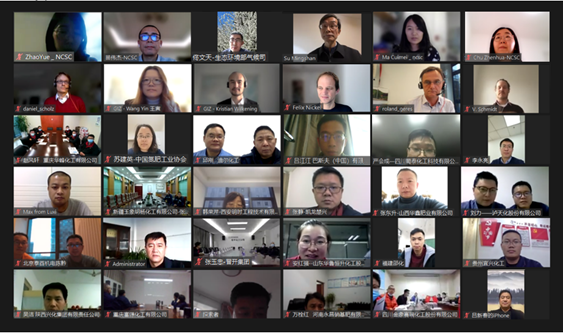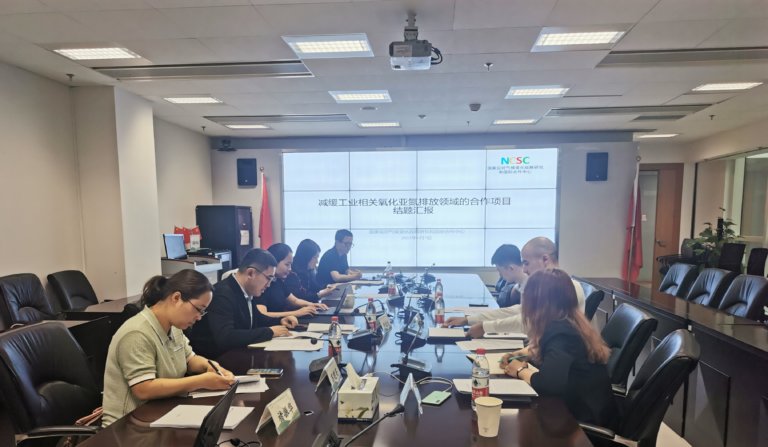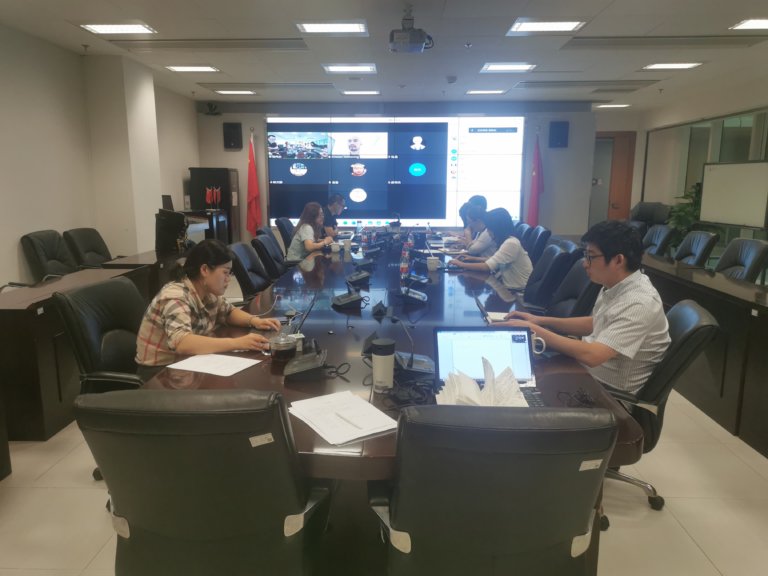Two capacity building training sessions were held on November 30 and December 1, 2022, under the guidance of the Department of Climate Change (DCC) of the Ministry of Ecology and Environment (MEE).
The virtual sessions were jointly organized by the National Center for Climate Change Strategy Research and International Cooperation (NCSC) and the Deutsche Gesellschaft für Internationale Zusammenarbeit (GIZ) successfully and contained information on industry-related N2O emission reduction.
The sessions witnessed attendance of 60 participants which included but were not limited to China Petroleum and Chemical Industry Federation, China Nitrogen Fertilizer Industry Association, and 26 other relevant enterprises from the nitric acid, adipic acid and caprolactam sectors. The capacity building trainings were moderated by Mr. SU Mingshan, Deputy Director of NCSC with the opening address being presented by Mr. TONG Wentian from the Strategy Division of the Department of Climate Change from the Ministry of Ecology and Environment and Mr. Kristian Wilkening from GIZ.

During the trainings, FutureCamp Climate GmbH gave a comprehensive overview about the Joint Implementation (JI), EU ETS and Measurement, Reporting, and Verification (MRV). Established in 2001, FutureCamp Climate GmbH works with operators from the chemical industry on greenhouse gases emission reduction and has relevant subject expertise regarding the Carbon Border Adjustment Mechanism (CBAM) as well.
During the trainings, the German experts from FutureCamp Climate GmbH and representatives from NCSC introduced the attendees to the experience of the German industrial sector related to nitrous oxide emission reduction; Chinese policies on industry-related nitrous oxide emission reduction; emission Monitoring, Reporting, and Verification (MRV) and of Clean Development Mechanism (CDM) projects. Representatives from BASF (China) Co. Ltd., Shandong Huayang Dier Chemical Co., Ltd., and Sichuan Shutai Chemical Technology Co., Ltd. shared technology developments on industry-related nitrous oxide emission reductions as well. These sessions were followed by an in-depth discussion by the attendees which was centered around mitigation policies and technology topics.
Deputy Director Mr. SU Mingshan delivered the closing speech, lauding the trainings for providing a platform for a comprehensive exchange and discussion on industry-related nitrous oxide emission reduction, which included the relevant policies, technologies and MRV in nitric acid, adipic acid and caprolactam sectors. The sessions helped enhance the ability of the relevant enterprises in these industries. Mr. SU concluded with a wish that all present would be inspired to strengthen communication and work in tandem to promote industry-related nitrous oxide mitigation.
Furthermore, one handbook organized by GIZ and authored by FutureCamp Climate GmbH, will be available in both English and Chinese. The handbook focuses on industry-related N2O mitigation experiences in EU and Germany, containing expertise on carbon credit mechanism, joint implementation (JI) and EU ETS (EU Emissions Trading System).



